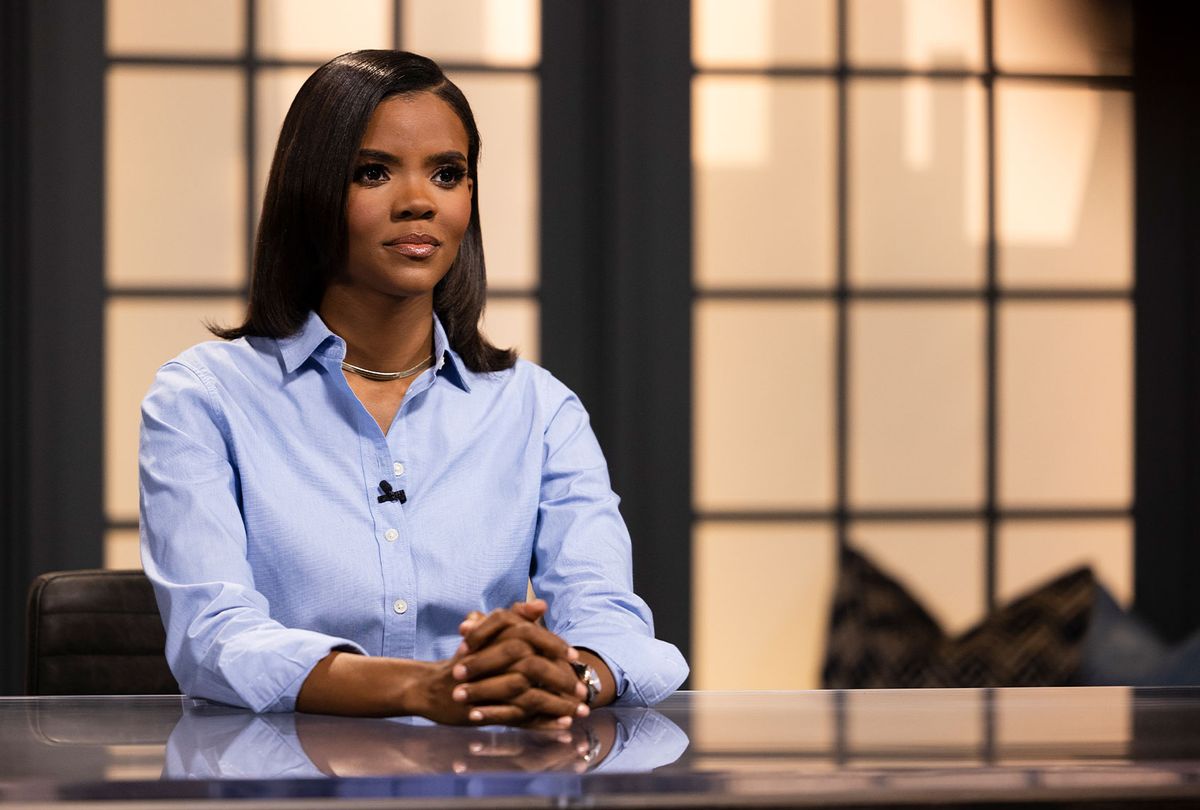Conservative commentator Candace Owens was retweeted by the Russian Embassy on Monday after using the phrase "Russian lives matter" amid the country's devastating invasion of Ukraine.
"Absolutely appalling the way Russians are being treated in America and abroad," she wrote last Wednesday. "That our leaders and government institutions are allowing for – and at times calling for this discrimination following their global 'black lives matter' hysteria is quite telling."
"Russian lives matter," the right-winger added.
Owens is ostensibly referring to the recent rise in vandalism and threats made against Russian-owned businesses in states like California, Texas, and Washington, D.C. According to The New York Times, many Russian-owned restaurants in New York, still recuperating from the pandemic, are now struggling to stay afloat amid a wave of "reservation cancellations, social media campaigns and bad reviews online."
RELATED: NATO leaves little room for diplomacy: How the war machine upped the ante in Ukraine
It's unclear why the Russian Embassy retweeted Owens' post. However, it's not the first time Owens has expressed pro-Russian sentiment, even as the country wages the largest unprovoked military incursion since World War II.
Last month, two days before Russia's salvo, Owens attributed Russia's invasion to the eastward expansion of NATO's membership.
Want a daily wrap-up of all the news and commentary Salon has to offer? Subscribe to our morning newsletter, Crash Course.
"I suggest every American who wants to know what's *actually* going on in Russia and Ukraine, read this transcript of Putin's address," she wrote. "As I've said for [sic] month – NATO (under direction from the United States) is violating previous agreements and expanding eastward. WE are at fault."
In fact, no such agreements were made, as NATO explains on its website.
Owens' confusion appears to stem from comments made between former Secretary of State James Baker and Mikhail Gorbachev, the former President of the Soviet Union. During a meeting in 1990, just after the fall of the Berlin Wall, Baker promised Gorbachev that NATO forces would not be deployed in what was known as East Germany. But according to PolitiFact, no mention was made of NATO inducting other countries into its membership.
"There was a discussion about whether the unified Germany would be a member of NATO, and that was the only discussion we ever had," as Baker told CNN during a 2009 interview. "There was never any discussion of anything but (East Germany)."
Since its founding in 1949, NATO has included 39 new members, including Eastern European countries such as Hungary, Poland, Slovakia, and Albania. During the leadup to the invasion, NATO was weighing the admission of Ukraine, whose leadership has expressed an interest in joining.



Shares